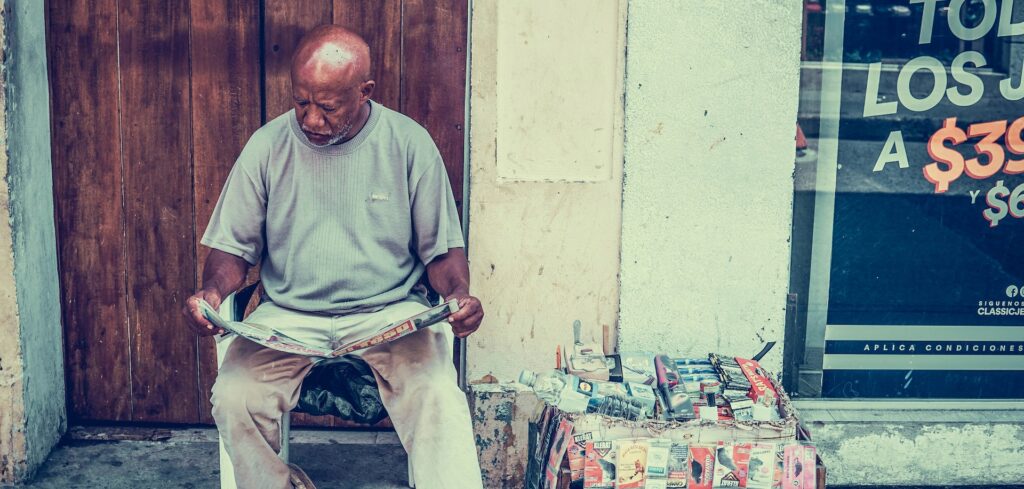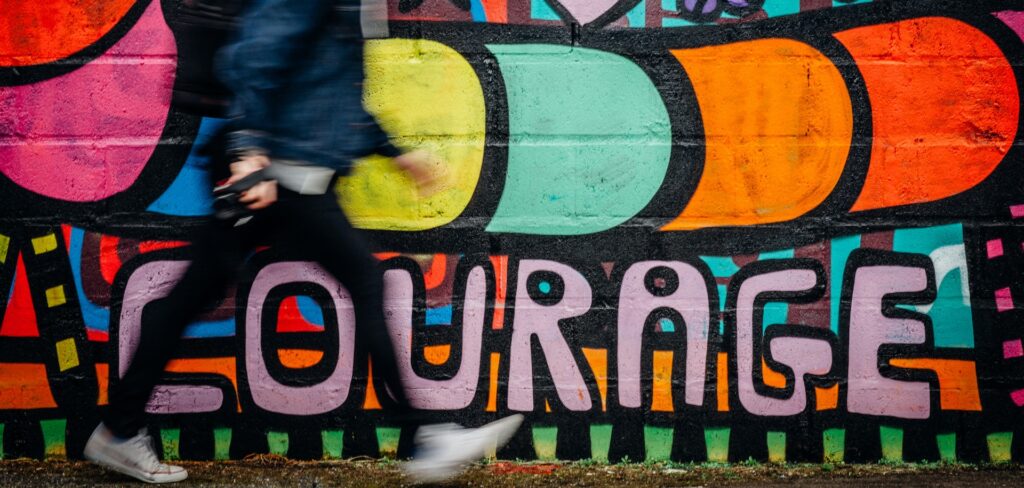Why does big oil bankroll the anti-trans movement?

The media organisation Atmos recently highlighted research that showed the extent of fossil fuel funding for organisations that campaign against trans rights in the US. Why would big oil bankroll the anti-trans movement? It doesn’t seem that there is any material connection between these two things – transphobia and fossil fuel extraction – no obvious […]
To face environmental destruction, UK media must help England face its colonial legacy

Last Friday, I attended “Voices from the Amazon: Our Stories, Our Solutions” – an event that brought together Indigenous creatives and activists to share their perspectives on media representation, environmental justice, and decolonisation. The conversations were powerful, challenging, and – for those of us working in UK-based, and more specifically English, media organisations and who […]
If people care deeply for one another and other living beings, why does it feel like everything is going wrong?

At Common Cause, we often find ourselves grappling with a striking paradox: why, when people report placing high importance on universalism and benevolence values that predict deeper levels of social and environmental concern, isn’t faster progress being made on social and environmental justice? Indeed, why – on so many fronts – is such progress being […]
Parenting in the age of neoliberalism: how extrinsic values have reshaped childhood

As I dutifully re-read the Paw Patrol book thrust into my hands by my three-year-old for what felt like the hundredth time that day, I found myself skipping over the section where the cartoon canine heroes receive “brand new trucks” and uniforms before embarking on their rescue mission. The jarring consumerism embedded in a children’s […]
Breaking the ouroboros* and ushering in new possibilities

Like many folks, I’m drawn to the much-quoted phrase by author, speaker and teacher, Bayo Akomolafe: “the time is very urgent – we must slow down”. (This piece by Bayo and co-author Marta Benavides, from which the phrase originates, is so wonderful and I implore you to read it!). This phrase encompasses a quiet but […]
George Lakoff and the Arts on Trump’s inauguration day

On the day of Donald Trump’s most recent inauguration, the veteran campaign strategist and “deep frames” scholar George Lakoff published a 17-point rallying call to resist authoritarianism, co-authored with fellow framing expert Gil Duran. Lakoff is an old friend of our work, which grew from our efforts in the mid-2000s to align his understanding of […]
Values in the Media conference 2024: Recognising the media’s role in shaping society’s cultural values – a summary

Are we more likely to value a CEO’s quarterly profits or a community’s collective resilience? Do we celebrate individual wealth and prestige or collective wellbeing? How does the mainstream news media help shape which of these things society sees as important? Last month, media professionals gathered at the historic St Ethelburga’s in London to grapple […]
Generalised prejudice is a root cause of social and environmental crises

Social and environmental campaigning is fragmented across different ‘causes’ – poverty, biodiversity loss, racism or climate change, for example. Yet a single driver lies beneath multiple forms of social and environmental injustice. Unfortunately, the fragmented nature of most campaigning means that this driver – the strengthening, at a cultural level, of “extrinsic” values of wealth, […]
Bridging the values gap: reimagining journalism through human connection

Last month, a friend and colleague shared an article with me that cited a recent study conducted into ‘journalistic values from an audience perspective’ in Chile, the results of which recognised the “importance of the human touch in journalism”. The two academics; Mellado and Gajardo, uncovered a profound disconnect between how journalists perceive their professional […]
The Big Thing People Miss When Thinking About Values

January will mark five years since I started working at the Common Cause Foundation. A key reason why I wanted to join the organisation was its unique mission – shifting cultures away from competition, inequality and oppression, and towards regeneration, equity and harmony, by celebrating and elevating the intrinsic values that underpin our care for […]